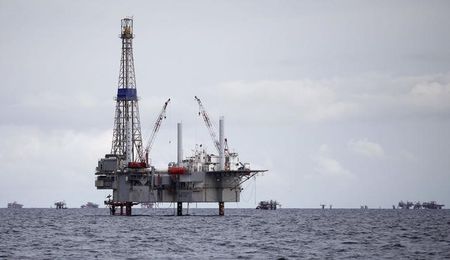
Investing.com– Oil prices rose in Asian trade on Friday and were headed for a positive week as increased concerns over Russia and Ukraine saw traders attach a greater risk premium to crude.
Supply disruptions in Norway and a brief pullback in the dollar had also supported oil prices earlier in the week, as did reports that the Organization of Petroleum Exporting Countries and allies (OPEC+) was likely to postpone a planned production hike.
An increased risk premium helped oil largely look past a bigger-than-expected build in U.S. inventories.
Brent oil futures expiring in January rose 0.4% to $74.54 a barrel, while West Texas Intermediate crude futures rose 0.5% to $70.10 a barrel by 20:44 ET (01:44 GMT). Both contracts were trading up between 4% and 5% for the week.
Russia-Ukraine tensions put oil on track for weekly gain
Oil’s gains this week were driven by concerns over supply disruptions stemming from the Russia-Ukraine war, especially as Kyiv began using Western-made long-range missiles.
Russia had responded by lowering its threshold for nuclear retaliation.
On Thursday, reports said that Russia had fired a hypersonic medium-range ballistic missile at a Ukrainian target, with President Vladimir Putin warning that more could follow.
Oil markets are particularly concerned that Ukraine could damage Russia’s energy infrastructure, disrupting its oil production and tightening global supplies. This notion has been a key point of support for crude.
But oil also benefited from some bargain buying after logging steep losses in October on concerns over slowing demand, especially in top importer China.
OPEC+ could postpone production hike- Reuters
The OPEC+ is considering postponing a planned production increase to next year, Reuters reported this week, amid persistent concerns over slowing demand and weakening prices.
The cartel had initially planned to begin increasing production from late-2024, but has steadily postponed these plans earlier in the year. The cartel is expected to do so again when it meets on December 1.
Increasing supply outside the OPEC is also expected to weigh on oil prices in the coming year, with analysts forecasting the possibility of a supply glut. This forecast has also kept the OPEC wary of increasing production.
This post is originally published on INVESTING.




